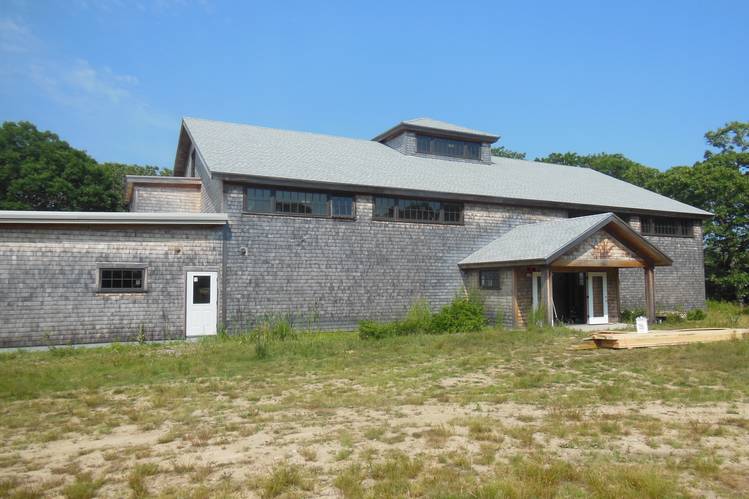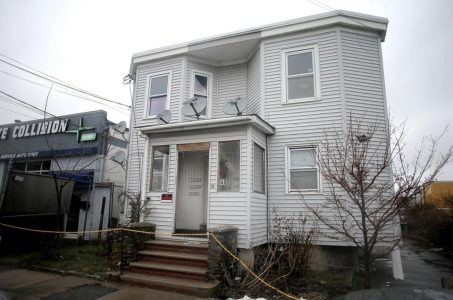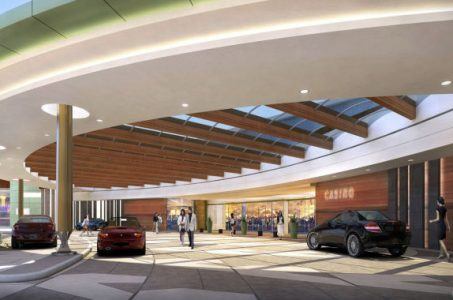Martha’s Vineyard Casino Cleared for Construction After Supreme Court Denies Appeal
Posted on: January 9, 2018, 12:00h.
Last updated on: January 9, 2018, 12:07h.
The Wampanoag Tribe of Gay Head can build a Martha’s Vineyard casino on their sovereign Native American land on the far western tip of the island in Aquinnah.

That’s the result of the US Supreme Court deciding today to dismiss an appeal brought by the State of Massachusetts and Town of Aquinnah trying to block the gaming venue.
The Supreme Court’s rejection upholds a lower federal appeals court ruling that concluded the Wampanoag Tribe has every right to build a gambling facility on its soverign land. The state and town argued the tribe consented to an agreement in 1987 that the Native American community would never operate a gaming facility on Martha’s Island.
After Massachusetts legalized commercial gambling in 2011, the tribe said it wished to get in on the game to generate much-needed revenue. The federal appeals court ruled the Indian Gaming Regulatory Act (IGRA), passed by Congress in 1988 that allows recognized tribes to operate Class I and II gaming, supersedes the state’s non-gaming contract.
“I think it’s a wrong decision, but realistically I’m not surprised because the odds of getting a case before the Supreme Court are daunting,” Aquinnah/Gay Head Community Association President Larry Hohlt told the Vineyard Gazette.
Plans Unknown
Under the IGRA, the Aquinnah Wampanoag will be able to operate Class I and II gaming. For Class III games, which includes slot machines, table games, and other gambling formats commonly found at commercial casinos, the tribe would need to reach a compact with the state. That odds of that happening seem long.
Presently, the Native American tribe seems satisfied with electronic bingo machines and live bingo. Earlier proposals suggest the Aquinnah Wampanoag gambling facility will be more of a bingo hall than actual casino.
During the legal proceedings, the tribe suggested a gambling facility featuring 300 bingo machines, plus live bingo games. However, now fully cleared to build as big of a Class I and II facility as they wish, those plans could of course change.
The tribe believes the venue could generate about $5 million in annual revenues for the Native American community that has about 1,300 members.
Strong Hankering to Gamble
The Martha’s Vineyard casino will presumably have little impact on the vast majority of residents and annual visitors. That’s because Aquinnah and the tribe’s almost 500 sovereign acres are located in the region where locals call “up island,” an extremely rural area of the 100-square-mile island.
Most of Martha’s Vineyard’s population, as well as tourists, spend their time “down island” in the eastern portion towns and historic villages of Edgartown, Oak Bluffs, and Vineyard Haven.
For example, to travel from Vineyard Haven to Aquinnah is a 16-mile commute on a two-lane road that typically takes at least 30 minutes. Ferry service, the only way to reach Martha’s Vineyard, is reserved to two ports on the island’s northeastern shore.
That means only those with a strongest of desires to play bingo will likely be making the commute to the tribe’s gambling hall. “In a rural town on an island, inaccessible, only one two-lane road in, a gambling hall makes no sense,” Hohlt concluded.
Related News Articles
Wynn Boston Harbor Paying Top Dollar to Demolish Nearby Homes
Crown Resorts High Rollers Return One Year on from China Arrests
Most Popular
Las Vegas Overstated F1 Race’s Vegas Impact — Report
Vegas Strip Clubs Wrestle in Court Over Animal Names
Mega Millions Reportedly Mulling Substantial Ticket Price Increase
Las Vegas Strip Stabbing Near The Strat Leaves One Man Dead
Most Commented
-
End of the Line for Las Vegas Monorail
— April 5, 2024 — 90 Comments -
Mega Millions Reportedly Mulling Substantial Ticket Price Increase
— April 16, 2024 — 6 Comments -
Long Island Casino Opponents Love New York Licensing Delays
— March 27, 2024 — 5 Comments -
Nearly Abandoned Mall Outside Vegas Soon to Have Only One Tenant
— March 12, 2024 — 5 Comments
















Last Comment ( 1 )
It never ceases to amaze me how easy it is for politicians-state and federal-to dumb down as gullible non-Indian U.S./State citizens into believing that they-politicians-can pass common law that regulates from the womb to the tomb the health, welfare, safety, benefits, capacities, metes and boundaries of a select group of U.S./State citizens made distinguishable from all other non-Indian U.S./State citizens because of their "Indian ancestry/race" at the same time the Constitution’s 14th Amendment’s ‘equal protection’ foreclosed the very same politicians from enacting common law regulating from the womb to the tomb the health, welfare, safety, benefits, capacities, metes and boundaries for select group of U.S./State citizens with 'slave ancestry/race' all without a shred of Constitutional authority to do so.